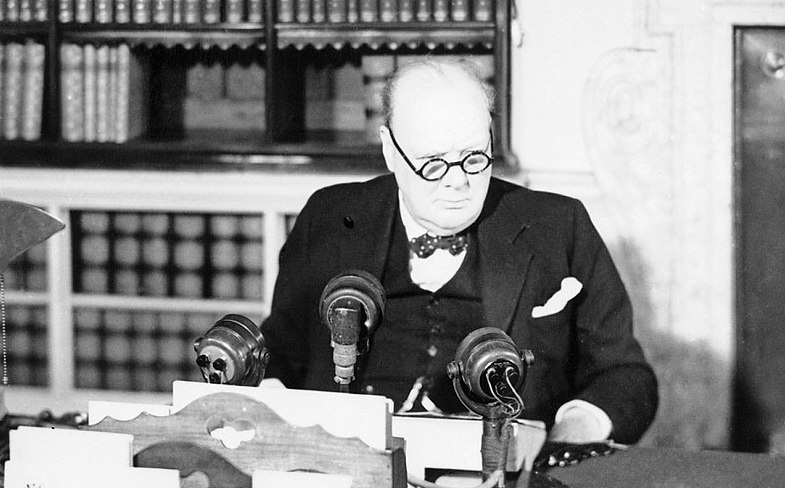


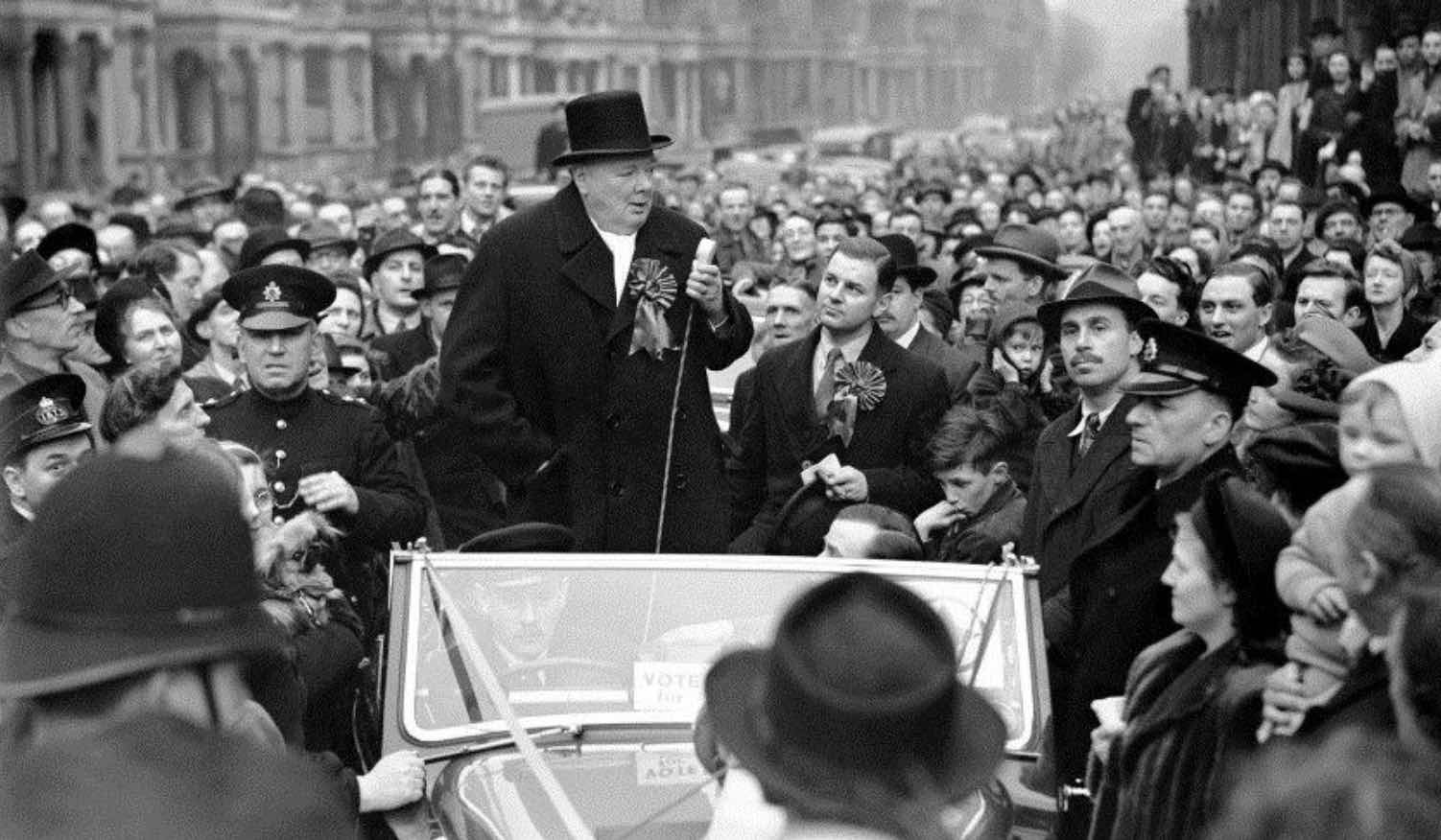
Sporadically, pundits compare Donald Trump with Winston Churchill. There’s even a book coming out on the subject. I deprecate all this by instinct and will avoid that book like the Coronavirus. Surface similarities may exist: both said or say mainly what they thought or think, unfiltered by polls (and sometimes good advice). But Churchill’s language and thought were on a higher plane. Still, when a friend said that Churchill never stooped to derisive nicknames like Trump, I had to disagree.
Whether invented by the President or his scriptwriters, some of Trump’s nicknames were very effective.…
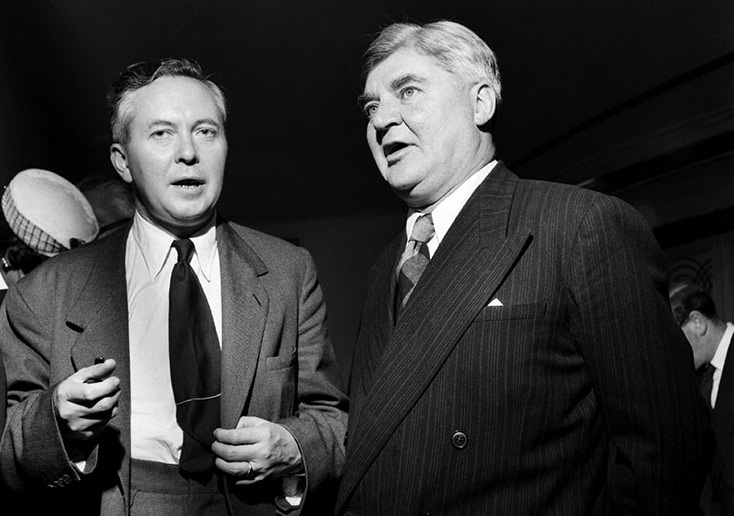
“Two days earlier I had been a Minister of the Crown, red box and all. Now I was reduced to the position of a messenger between my wife and Winston Churchill, each of whom burst into tears on receipt of a message from the other.” —Harold Wilson
___________
The Hillsdale College Churchill Project is rapidly completing final volumes of Winston S. Churchill, the official biography. (The name is somewhat of a misnomer; no one has ever censored any material.) Suitably, all thirty-one volumes will be complete by June 2019: the 75th Anniversary of D-Day. It will be fifty-six years since Randolph Churchill and his “Young Gentlemen” including Martin Gilbert began their work.…
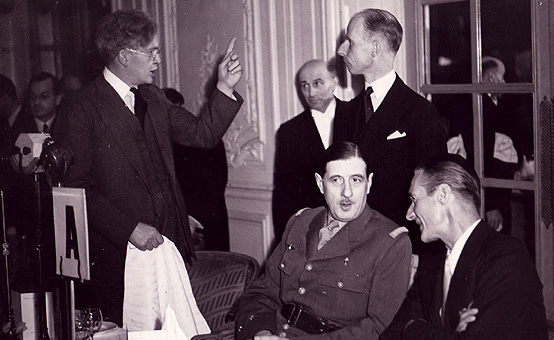
“Stanley Baldwin, showing an unexpected familiarity with Indian phrases, described Brendan Bracken as ‘Winston’s faithful chela,‘ wrote the biographer Charles Lysaght. “This is what gave Bracken his place in history, a minor but still an important one.”
The Hillsdale College Churchill Project has published two articles on Brendan Bracken, Churchill’s loyal ally and friend for four decades. The first begins with a memoir by the late Ron Robbins, a Canadian journalist who early on covered the House of Commons, where he met Bracken. The postscript is by me, followed by reviews of the two Bracken books by George Gale and A.J.P.…
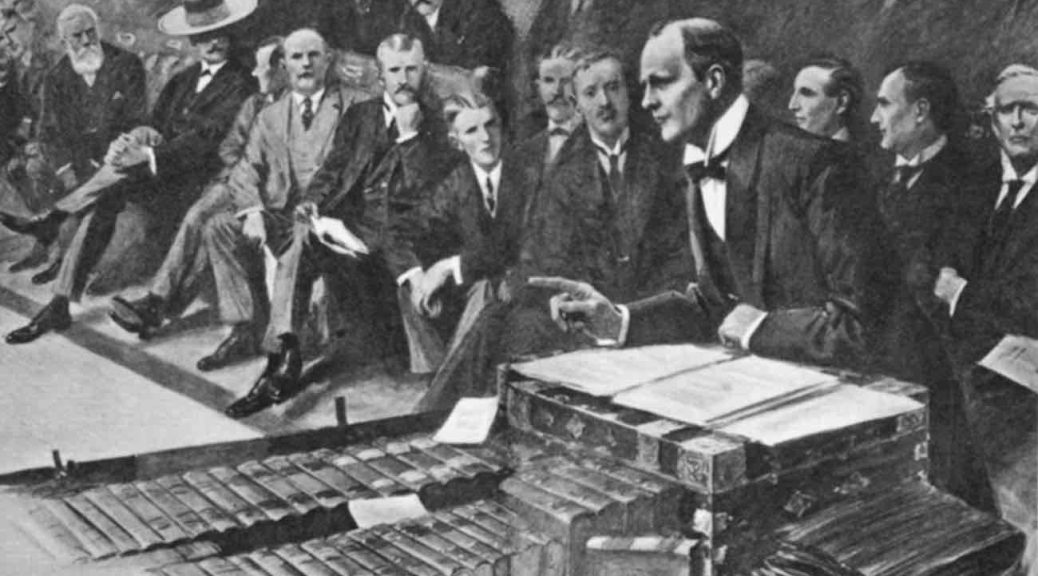
“How Would Churchill Tweet?” appeared in National Review, 12 August 2017.
Since President Trump has taken office, the public has quickly learned to get its political news from a novel source—namely, the President’s Twitter account.
The move to this platform represents a shift in the nature of politics, both for good and for ill. Trump might be among the first political leaders to use this medium to attack opponents or make major announcements. He is certainly not the first to utilize the kind of brevity the platform requires to make his points.
Such brevity also characterized the rhetorical style of Winston Churchill, whose wit, humor and insight complemented his decisive and effective political leadership.…
The campaign to Leave is heating up. Take Grassroots Out, a “combined operation” supporting Brexit—the campaign for Great Britain to exit the European Union. G-O fielded a broad spectrum of speakers in London February 19th. Along with UK Independence Party leader Nigel Farage were Conservative Sir William Cash, Labour’s Kate Hoey, economist Ruth Lea, and a London cab driver.
The most unexpected Leave speaker was the far-left former Labour MP and head of the socialist Respect Party. Mr. George Galloway was immediately queried about his new colleagues.
“We are not pals,” Galloway replied.…
“I was, I think, the first in this House to suggest, in November 1949, recognition of the Chinese Communists….I thought that it would be a good thing to have diplomatic representation. But if you recognise anyone it does not necessarily mean that you like him. We all, for instance, recognise the Rt Hon Gentleman, the Member for Ebbw Vale.”* —Winston S. Churchill, 1 July 1952.
On President Obama’s December 17th announcement restoring diplomatic relations with Cuba, a colleague writes: “Finally we’ll have access to truly great healthcare.”
Funny. Actually top tier Cuban healthcare is mainly for party members. There is a tiered system.…